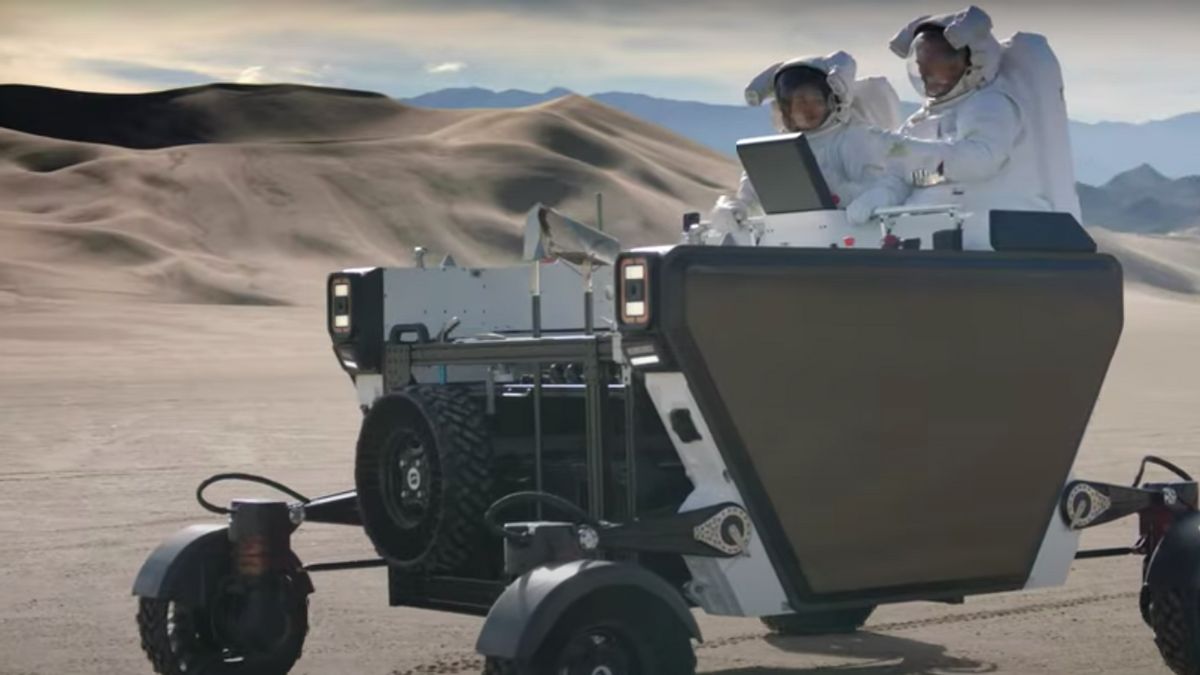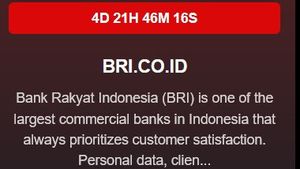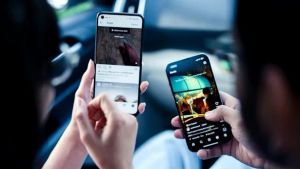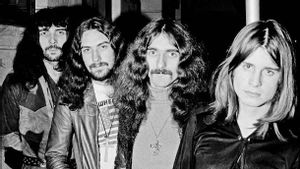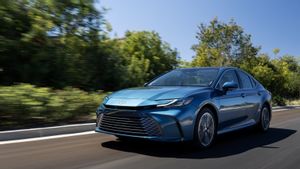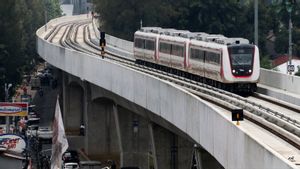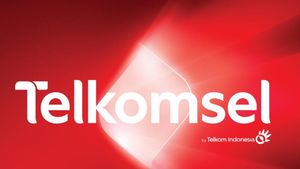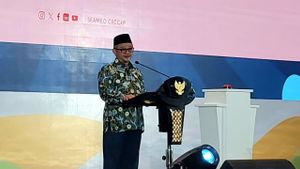JAKARTA – A prototype lunar rover, similar to a giant pram, is being assembled by aerospace startup Venturi Astrolab. The buggy, called the FLEX, will be able to carry astronauts across the lunar surface in the coming decades.
Buggy, from Venturi Astrolab, will also be able to crouch and lift loads from soil and rock on the Moon. The rock or soil sample will be carried under the stomach. The buggy also has cargo storage.

Venturi Astrolab plans to assemble a fleet of rovers over the coming years in a bid to become the 'UPS, FedEx, and Uber' on the moon.
They want to help NASA and commercial companies establish a long-term presence on Earth's only natural satellite. However, they have not disclosed how much the rove will cost.
Named FLEX, for Flexible Logistics and Exploration, the rover has a 'modular payload concept' which allows it to carry a variety of different objects if built to an agreed standard of size and shape.
The buggy can be controlled remotely, maneuvering semi-autonomously. The buggy can even be modified to include a crew interface so astronauts can ride it while riding it across the lunar surface.
Venturi Astrolab, based in Hawthorne, California, was formed by a team of industry-leading planetary explorers and robotics experts.
Historically, planetary explorers have each been bespoke and have operated on a timescale of roughly once per decade. Often such vehicles are built at a cost of billions of pounds.
FLEX, it is claimed, is much more compatible with NASA's ultimate goal of supporting a sustainable presence on the Moon and Mars because it is designed around a modular payload interface that supports intermodal transport (from the lander to rover and back).
"For humanity to truly live and operate sustainably beyond Earth, there needs to be an efficient and economical transportation network from launch pads to outposts", said Jaret Matthews, founder, and CEO of Astrolab, as quoted by Dailymail. "Right now, there is a gap in the last mile and Astrolab is there to fill it."
NASA currently has a goal of placing the first woman and the next man on the Moon by the end of the decade. However, the mission was plagued by delays, with the target having been missed from 2024 to 2025. Even now that target is unlikely to happen before 2026 according to US space agency regulators.
Meanwhile, billionaire entrepreneurs Elon Musk and Jeff Bezos are working to develop landers to take people to the lunar surface through their respective companies SpaceX and Blue Origin. They are also considering the feasibility of a longer mission to Mars.
Other commercial companies are developing robots to carry cargo to the moon.
Matthews said that while SpaceX and Blue Origin are working to solve long-haul transportation problems, he hopes his company Venturi Astrolab will 'solve local transportation problems'.
Matthews began his career at NASA's Jet Propulsion Laboratory, working on the twin Explorer, Spirit, and Opportunity rover that launched to Mars in 2003, before moving to SpaceX.
Matthews formed his new company with the founders in January 2020. They have built a full-scale FLEX prototype and recently completed a test drive in the California desert near Death Valley.
Retired NASA and Canadian Space Agency astronaut, engineer, and author, Chris Hadfield, who is on Astrolab's advisory board, took part in a five-day field test to provide feedback on the vehicle's design and performance.
"As we transition from the Apollo era, which focused on pure exploration, to now, where people will live longer on the moon, equipment needs to change", Hadfield said.
“When we settle in a place, not only do we need to carry people from one place to another, but we need to move hardware, cargo, life support equipment, and more", he added.
These various missions make the FLEX a multi-functional vehicle that is expected to fulfill these increasingly advanced and growing tasks and demands.
The English, Chinese, Japanese, Arabic, and French versions are automatically generated by the AI. So there may still be inaccuracies in translating, please always see Indonesian as our main language. (system supported by DigitalSiber.id)
